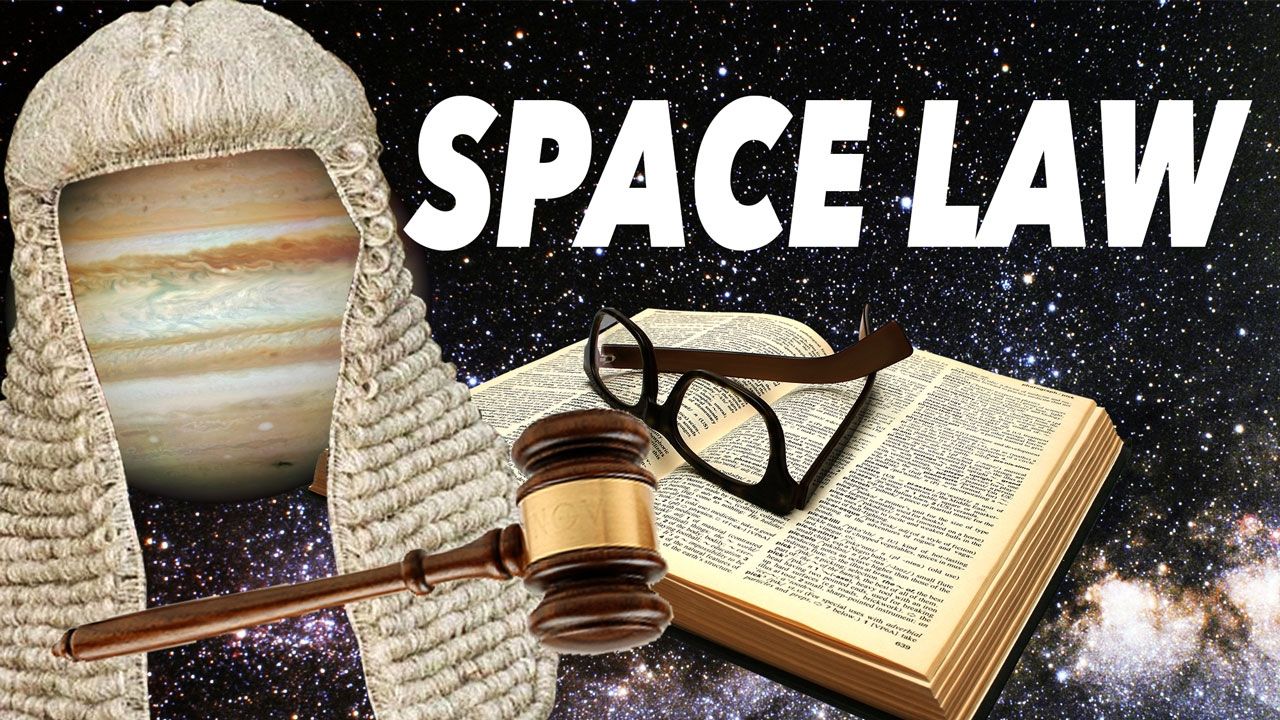
The field of Ufology is moving forward and EXOPOLITICS is also becoming more recognized and talked about in this move. At the well-led forum by Mr. A.J. Gevaerd, the “Foz de Iguazu Letter 2014” intended for Brazilian representatives and senators was perfected and signed to ask them to begin to openly discuss UFO issues. The forum’s emphasis was on the social implications of the extraterrestrial presence. There also was an emphasis in speakers that proposed using effective psychic and “espirita” (spiritist) means to develop verifiable human-extraterrestrial interactions.
While there were several outstanding researchers (like France’s CNES’ Jean Jacques Velasco and Professor Erling Strand of the Hessdalen Project and Østfold University College) objectively substantiating the high probability of advanced, intelligently directed objects behind some UFOs, definitely the tenor of the event was not about whether the ETs might be here but about moving forward now that it was clear for most researchers that they were. Next (from notes taken personally at the conference) I’ll give a few summaries of three specific presentations more specifically relevant to exopolitics.
From the presentation by Mr. Thiago Luis Ticchetti (co-editor of “Revista UFO” from Brazil):
QUESTION: What will happen after disclosure of the extraterrestrial presence? Some possible answers:
After 1 min: Call relatives and tell them about the news. After 1 hr.: Billions of emails. After 1 day: More serious questions are asked.
First reactions
Are they similar to us? Are they intelligent but non-human? What are their goals? Are they benign or malignant? Are we safe?
Handling of disclosure information
Will it be handled stealthily? With how much aperture to the public? Will only a few of the secrets held be given to the public or all of them? Will this information be given voluntarily? A total radical aperture including the good and the bad?
What will happen with the political conflicts around the world? Will some be set aside to face as a species the new challenges? Ufologists will become important.
If there’s a partial (controlled) aperture it may be because governments fear a generalized panic. How will the world financial markets be affected? How will they be affected by extraterrestrial technology thereafter?
Most likely there’ll be a “false,” deceiving aperture because “nothing is certain in a trillion dollar industry filled with cover-ups. But changes do take place. Perhaps the population will have about 6 days to digest information that will change life forever.
Martial Law will be declared in a number of places in the world. The media will say that UFO stories were true after all. INTERNET will be working at maximum capacity. There will be some technical problems.
In Budhism, Hinduism and Spiritism there’s belief in extraterrestrial existence. Some other religions may have a problem with that.
There will be opposing and favorable opinions about ufological opening. Opposing: More armament will fall into aggressive hands. In favor: Technology can help people.
By the time of that dialogue/controversy perhaps more will be known about who the ETs are and what they want?
Who are they and what do they want?
Are they a threat or are they friendly? Are they in fact “extraterrestrials?” Are they intelligent machines? Are they terrestrial entities? Are they “extra” or ultradimensionals? Are they angels or demons? Are they time travellers? Are they from the future and cannot interact with us openly so as not to alter the future?
Are we like laboratory rats? Are they in a rescue mission? Do they want our DNA? Do they want to create a new type of species and-or save their own species? Do they want to eat our meat perhaps like the mutilated cows? Some evidence indicates that they were alive when they were eaten. 30,000 persons disappear every year.
Do they want our souls? Do they want our “oasis” planet? Perhaps they want nothing? Do they have empathy towards human beings? What technological level do they have? Have they already infiltrated in our society? Would some hybrids be able to pass for us easily?
Giorgio Piacenza: I’ll add: Do they want us to teach them something (let’s not assume that they can’t learn some things from us). Do they want to have our capacities, even capacities which we have not clearly recognized in us?
Institutional, Social & Cultural Questions
Will some cultural foundations crack? Will some institutions suffer credibility problems for having previously hidden this reality? How much did they know inside the government? Who knew?
There will be a new “energy equation” (new sources of energy affecting societies, productions, the economy).
How will the legal system of countries with extraterrestrial presence change?
In the coming Age what is liberated-disclosed will determine what is going to happen.
How will the day-to-day life of people continue? How will the educational structure change?
History will be re-evaluated. With respect to anthropology and archaeology we will ask: What is true or false? Psychology will have questions like: Is it possible to control experiences and memories like some ETs have shown?
Exopolitics will grow. All politics will be global. Since Brazil is the 5th country in terms of population and area and with several ufologists it will become a ufological power.
Soon we will all know the truth.
In 1986 there was a night in which after several dramatic sightings UFOs were admitted in Brazil with the presence of Brigadier Moreyra Lima https://www.youtube.com/watch?v=iT8VuLKOGzE#t=58
From the presentation by Dr. Alexandre Dittrich Buhr “Proposal for an Ethics for the Encounter with Cosmic Civilizations”:
Dr. Buhr is a professor and a judge, with a MsC in legal sciences and lives in the Brazilian State of Santa Catarina (where important crop circles have been regularly appearing in the past few years). He’s also had a long-time interest in Space Law, is the author of “Direito Espacial” (Space Law) and clearly includes important Exopolitical considerations.
We have to consider Space Law, Ufological Events and Ethics: Space Law regulates how countries and businesses use space. Ufological Events need to be understood under a legal perspective and Ethic need to be developed for encounters with cosmic civilizations.
By convention In Aeronautical and Space Law the limit where space starts is at 100 Km over sea level. Space technology is present in daily life. Economy, agriculture, airplanes already use space related technology.
There is Public International Space Law; Public Internal Space Law and Private International Space Law.
Space activities tend to be messy. However, there have been some treaties like the foundational 1967 Space Treaty, the 1968 Agreement on the Return of Astronauts and the Return of Objects Launched into Outer Space, the 1972 Space Liability Convention (how states are responsible when satellites fall), the 1974 Registration Convention (only 62 signing states have to inform the UN of satellites launched and their orbits but military satellites are not controlled), the 1979 Moon Agreement (subscribed by very few countries). But the 1967 Space Treaty is for the good and interests of ALL countries, stating that nothing from Outer Space can be an object of national appropriation. But the U.S. probably places weapons in space even if the UN is in agreement with the spirit of the 1967 Treaty.
Brazil has already celebrated treaties with the European Space Agency (ESA), Germany, Argentina, Chile, China, Colombia, France, India, Russia, Ukraine and the US. Brazil has been a member of the United Nation’s COPUOS (Committee on the Peaceful Uses of Outer Space) since its foundation in 1959.
It is currently considered that private activity is not contemplated under Space Law. This includes activities like space tourism, asteroid mining exploitation and rendering services to space agencies. There also is the issue of space waste. Also militarization of outer space is prohibited but it is done. There are unilateral and multilateral considerations. There’s the possibility of “space terrorism” (like attacking necessary satellites). There also is the possibility of encounters with hostile cosmic civilizations.
For most aerospace legal authorities there is no UFO phenomenon to consider. However, the violation of air space requires a legal interpretation. Also the issue of human contamination due to contact with extraterrestrial organisms requires more understanding. Moreover, the Penal Code would apply to implants, as a form of creating damage to the human body. It would also apply for sexual experiences during abductions and to the sanctity of home space violations. Some UFO-ET related events typified in the (Brazilian) Penal Code are implants generating corporal lesions (art 129), subtraction and/or placement of genetic material (213), kidnapping and withholding a person (art 150), illegal subjection of a person.
Mario Nogueira Rangel who wrote “Secuestros Alienígenas” (Extraterrestrial Abductions) made clear that many symptoms associated to the Abductions are violations both of the Penal Code and of Human Rights. However, we should recognize that there also are positive types of contacts. Think of Ezequiel’s experiences and of Elizabeth Klarer’s reference to the extraterrestrial Akon from Alpha Centauri. Interestingly J.J. Hurtak provided additional insights to the revealed names present in Klarer’s case.
But how should we position ourselves before a variety of extraterrestrial encounters? We need to develop an ethical understanding, a philosophical understanding and Interplanetary Space Law. We need to identify who they are and if they correlate with our basic ethical norms. We need to develop the philosophy of Interplanetary Space Law. For instance was the European civilization that brought modernity but enslaved so many in the New World good or bad? Are older extraterrestrial civilizations that have been interacting for a long time with us but which violate our rights good or bad?
From the presentation by Dr. Michael Salla “Exodiplomacy: How will Humanity Negotiate with the Extraterrestrial Visitors”:
“Exodiplomacy” is defined as the profession, activity or skill of managing diplomatic interplanetary relations by national and/or planetary representatives. There are many events signaling an increasing recognition of issues dealing with the extraterrestrial presence. Exoplanets are being discovered; in 2009 the Pontificial Academy of Sciences held an astrobiology conference; followed by the Royal Society conference on the Scientific, Societal Agenda on the Discovery of Extraterrestrial Life. On September 18-19, 2014 there was a NASA -SETI – Library of Congress symposium called “Preparing for Discovery.” The message (in agreement with the Royal Society is that it is important to prepare.
In a ceremony dedicated to unveling a bust for Pope Benedict XVI on October 27, 2014 Pope Francis I stated that God gave autonomy to beings in the Universe assuring them of His continuous presence according to the internal laws he gave them to develop http://www.ncregister.com/daily-news/pope-francis-lauds-benedict-xvis-emphasis-on-harmony-of-faith-and-science
Dr. Salla announced that the Reinstated Kingdom of Hawaii, a sovereignty independence political movement dedicated land to welcome the extraterrestrial visitors and could be a lead which governments could follow.
Regarding the practice of exodiplomacy who will represent the Earth? The UN? Major nations? Amnesty International? Popular Individuals? The Dalai Lama? Is there a role for private citizens? We can speak of “second track” exodiplomacy which includes non-official efforts to establish lines of communication. We need to educate society. However, discovery of extraterrestrial life may have already happened and secret negotiations may have taken place. For instance, Canadian Engineer Wilbert Smith found that UFOs exist and that they were the most highly classified matter in the U.S. Also, whistleblowers claim that President Eisenhower had two secret meetings with extraterrestrials (one at Edwards AFB in 1954 and one at Holloman AFB in 1955). Moreover, former Canadian Minister of Defence Paul Hellyer believes (as stated in his 2014 “Money Maffia” book) that secret negotiations with ET races have taken place. First-hand testimonies also suggest that alien technology has been reversed-engineered.
Dr. Salla informed us that – according to the U.S. Constitution – the U.S. senate has to ratify International Treaties but that “Executive Agreements” “other than treaties” are allowed. If such agreements had been held in 1954, 60 years would have passed until today (2014).
However, “Galactic Diplomacy” or extraterrestrial contact is also already happening through private citizens and perhaps we already have enough information to start preparing as citizens for more open contact with ETs. We can also educate and prepare other private citizens.
 The 2019 movie Ad Astra had a US military base on the moon and a memorable battle scene involving a moon rover, implying that by late this century the moon will be heavily militarised. A question now being discussed in space policy circles is whether fact will follow science fiction, as the US Space Force considers exactly what its role will be. It has some pretty ambitious ideas, and a recent report indicates that its thinking will be shaped by a deep astrostrategic perspective.
The 2019 movie Ad Astra had a US military base on the moon and a memorable battle scene involving a moon rover, implying that by late this century the moon will be heavily militarised. A question now being discussed in space policy circles is whether fact will follow science fiction, as the US Space Force considers exactly what its role will be. It has some pretty ambitious ideas, and a recent report indicates that its thinking will be shaped by a deep astrostrategic perspective. researching the idea of military bases on the lunar surface. The academy’s Institute for Applied Space Policy and Strategy has a ‘military on the moon’ research team that was set up ‘to evaluate the possibility and necessity of a sustained United States presence on the lunar surface’. The focus seems to be on a military base, though there’s little information on exactly what they’re planning.
researching the idea of military bases on the lunar surface. The academy’s Institute for Applied Space Policy and Strategy has a ‘military on the moon’ research team that was set up ‘to evaluate the possibility and necessity of a sustained United States presence on the lunar surface’. The focus seems to be on a military base, though there’s little information on exactly what they’re planning.


